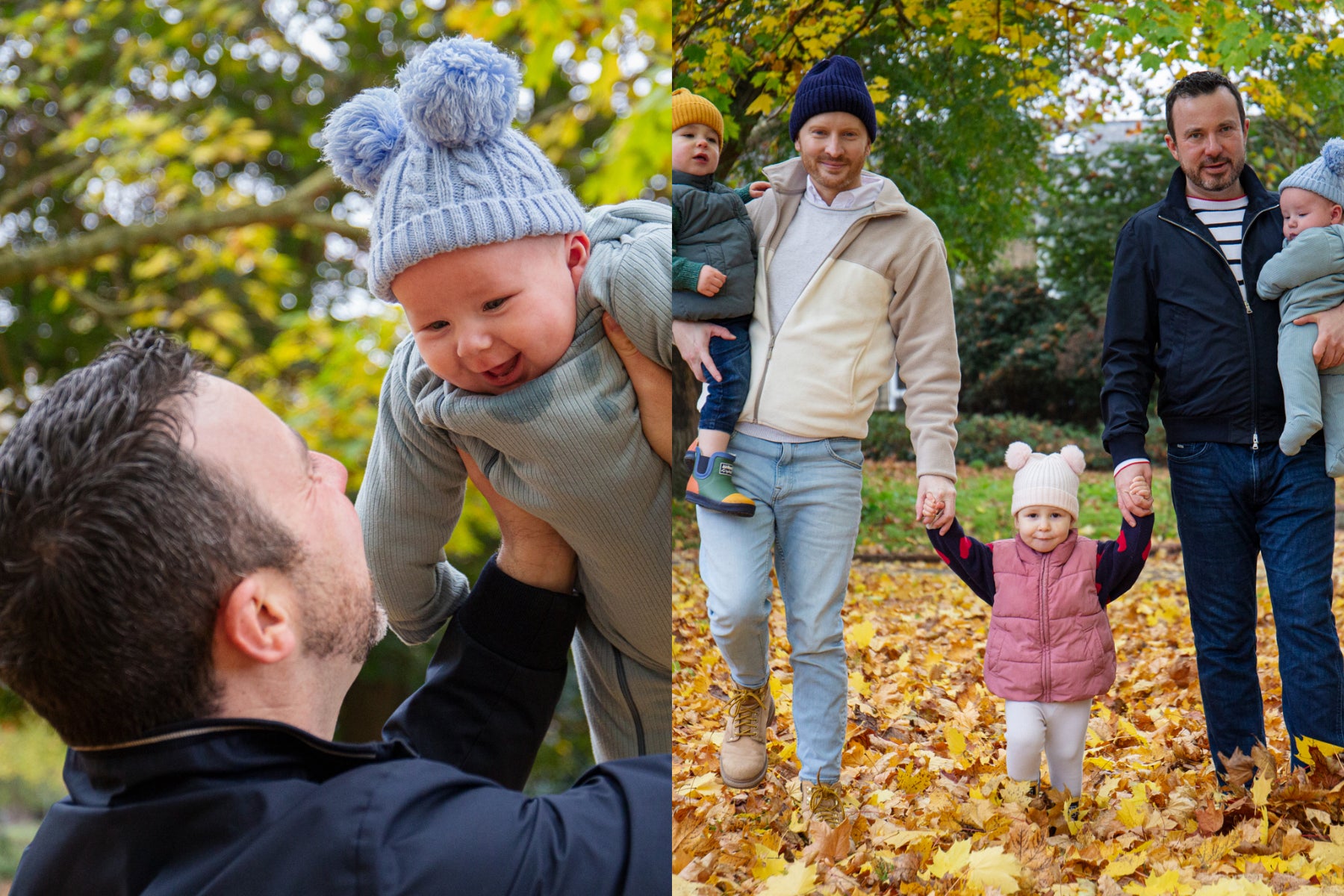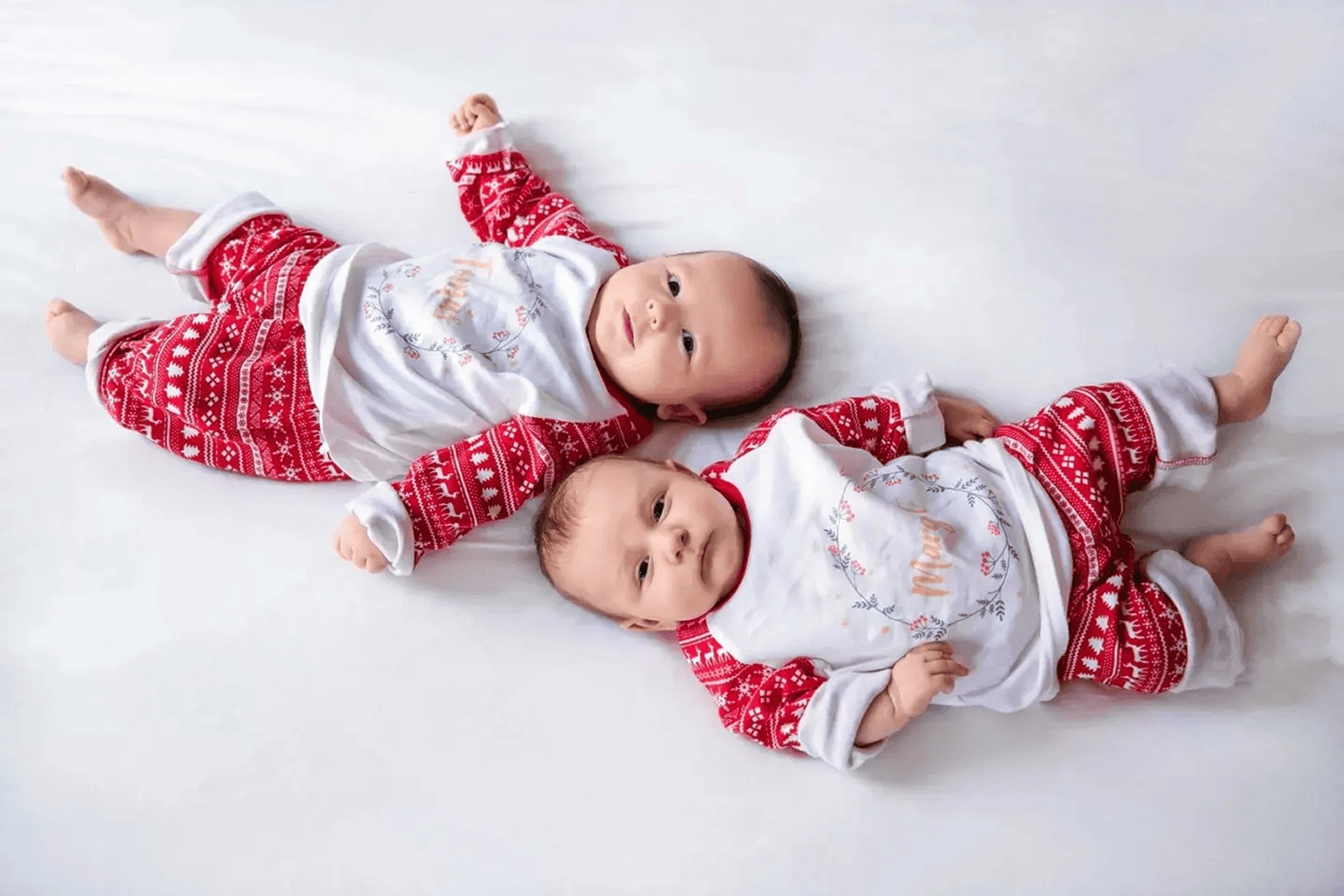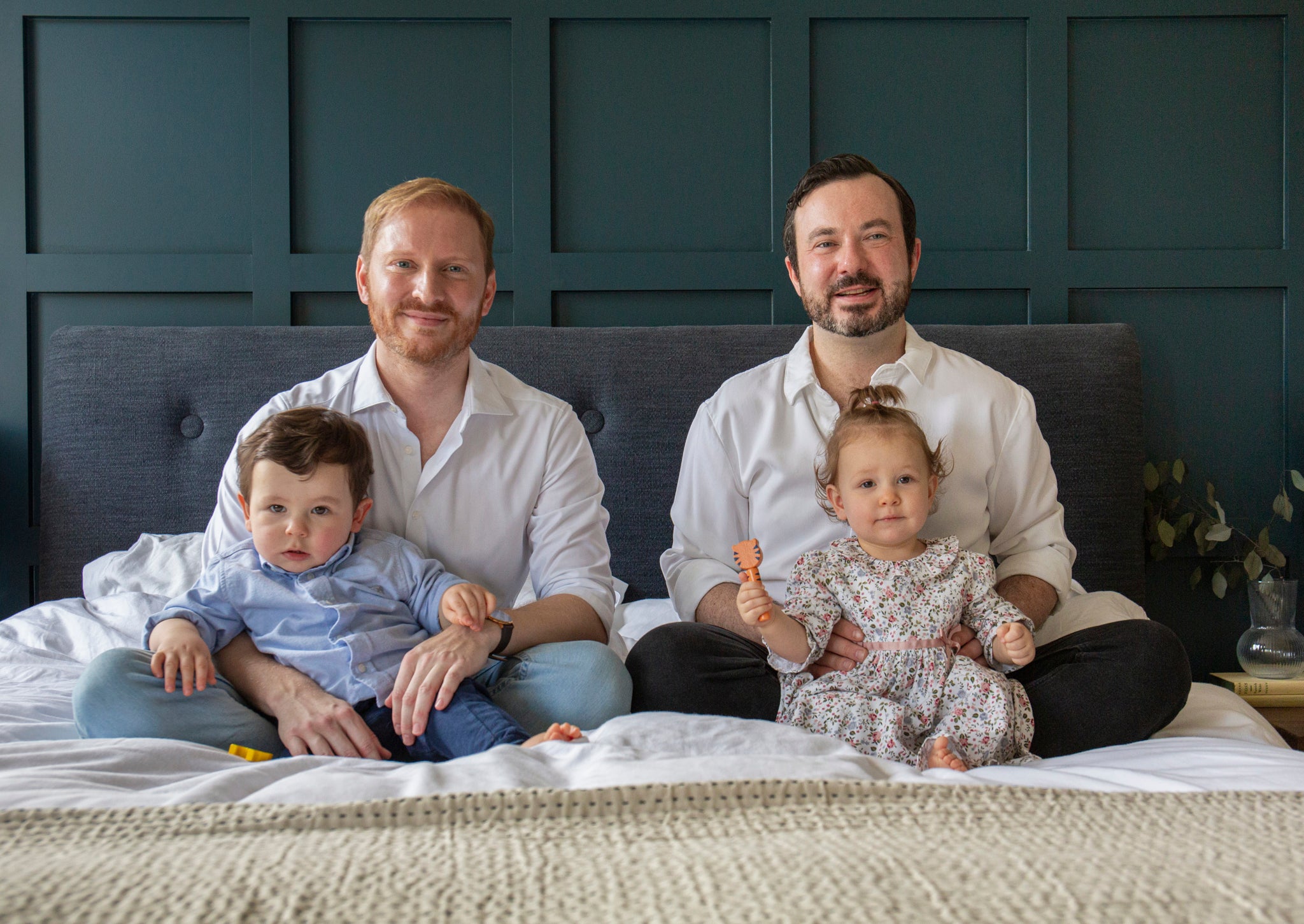
A London-based couple has shared their unconventional path to parenthood, celebrating the “Colombian fairy godmothers” who helped them have three children through surrogacy.
Shaun Thomas, a 36-year-old pharmacist, and his partner, 40-year-old banker Paul Brennan, found the UK surrogacy process daunting and expensive. Determined to start a family during the pandemic, they explored options abroad.
The couple’s research led them to Colombia, drawn by its affordability, ethical practices, and “high class egg donors,” they said. Despite the language barrier, they forged strong connections with the women who carried their children. Their twins, Margot and Tomas, are now two years old, and their youngest, Rian, is nine months old.
Reflecting on their experience, Thomas and Brennan expressed gratitude for the Colombian women who made their family possible. They are now encouraging their children to learn Spanish to connect with their heritage.
Thomas also offers guidance to other prospective parents navigating the complexities of international surrogacy through his website and consultancy service, The Surrogacy Father.

He and Brennan initially found the UK surrogacy system challenging, particularly the legal landscape and financial burden, and discovered that many others seeking surrogates turn to private online groups. Their journey saw them to consider various countries, including the US, Cyprus, and Canada, before settling on Colombia in 2022.
Shaun told PA Real Life: “You have to be very careful (using the Facebook groups), it’s almost like an underground operation.
“It’s not regulated and there can be so much misinformation.
“You see other people finding their surrogates on there and it makes you question yourself to think ‘why haven’t we been picked?’.
“It can be a really lovely thing for other people but trying to find a surrogate is a very tricky thing.”
During the pandemic, Shaun and Paul began “re-evaluating (their) lives” and decided to start researching their options for becoming parents.
They chose the surrogacy route as they “liked the idea” of having a “biological connection” to their children.
However, after consulting friends with surrogate children and lawyers and conducting their own research, they realised that surrogacy in the UK would be a challenging and long process.
According to the Surrogacy Arrangements Act 1985, it is illegal in the UK to advertise for a surrogate or to arrange a surrogacy agreement for commercial gain.
Non-profit organisations can support intended parents and surrogates but any agreement made is not legally enforceable.

Shaun explained: “To join one of the not-for-profit organisations, you’d pay around £1,000 as a joining fee and they don’t match you with potential surrogates.
“We, like a lot of people, were hoping to meet a best friend who would also agree to be our surrogate but we thought that would take two to four years just to find one surrogate when we wanted more than one child.”
These issues have led to the popularity of Facebook groups where parents hope to meet a surrogate.
Shaun joined one of these groups and discovered it hosted casual meet-ups between surrogates and intended parents but found it “felt a little artificial”.
Because of the law, when posting in there, members must not be too explicit on what they are looking for to avoid advertising themselves.
If a surrogate is found, in the UK, the potential obstacles don’t stop there.
At birth, the surrogate is the child’s legal parent, and if the surrogate is married or in a civil partnership, her spouse is usually the second legal parent unless they don’t consent.
Legal parenthood can only be transferred through a parental order or adoption, with the courts intervening if disputes arise, based on the child’s best interests.
He said: “In an ideal world we would have had a UK surrogate journey for so many reasons – the language, the logistics, and having an even longer bond with the surrogate.”
They explored other options, such as the US, but found it would cost between £145,000 and £200,000 for one child.
A friend also suggested Kenya, but they felt it “was not appropriate for (them) as a same-sex couple”.
While continuing their search online, the couple discovered Colombia as a potential surrogacy option, costing around £50,000 per child, and were intrigued having both visited the country on holiday.
After their lawyer confirmed it was a regulated and “welcoming” destination for same-sex couples, they connected with agencies, lawyers and parents, finding it met all their criteria with affordable, ethical services and “high-quality egg donors”.
In 2022, they decided to go ahead.
Shaun and Paul used the same egg donor, with half of the eggs fertilised by Shaun and the other half by Paul to create embryos.
Each set of embryos was transferred to a different surrogate, with their menstrual cycles synchronised to enable transfers on the same day.
This method aimed to “replicate a twin pregnancy”, and both transfers were successful.
Shaun said: “We just felt so lucky that it took the first time, we couldn’t believe it and were very excited.”
The “only cons” Shaun and Paul encountered during the pregnancy was the time difference and language barrier between them and the surrogates.
Shaun said they were kept informed of all scans and appointments and they flew out for the 20-week scan to meet the surrogates again before the birth.
Both babies were due on the same date, but Margot, conceived using Shaun’s sperm, was born six days earlier than Tomas, who was conceived using Paul’s sperm.
“It was a whimsical experience and no matter how much you read about becoming parents, it’s still brand new to you,” Shaun said.
“It’s a magical thing.”

Paul took six weeks of paternity leave, while Shaun took a year off to “look after the children”.
In 2023, Shaun and Paul had three embryos remaining and felt they owed it to themselves to attempt further transfers.
The first transfer failed, the second ended in miscarriage, but the third, using Paul’s sperm, was successful.
Their son, Rian, was born in July 2024.
Shaun said: “We felt like the luckiest people in the world and we just experience so much joy with having our children.”
Since then, they have remained in contact with the surrogates and have books that explain to their children they were born through surrogacy.
Shaun said: “We see the surrogates as Colombian fairy godmothers, but they’ll always be part of our lives, because if it wasn’t for them, we wouldn’t have our children.”
As their egg donor was Colombian, the children are half Colombian, and Margot and Tomas are bilingual in Spanish and English to “give them as much opportunity to explore” their roots when they are older.
Shaun has also launched a website and social channels, The Surrogacy Father, to support others exploring surrogacy and is an independent international surrogacy consultant.
To further help prospective parents, Shaun will be speaking at Growing Families’ UK/EU Surrogacy and Donor Conception Conference on May 10 in London. For more information, visit: www.growingfamilies.org/london-event-2025.
Source link







